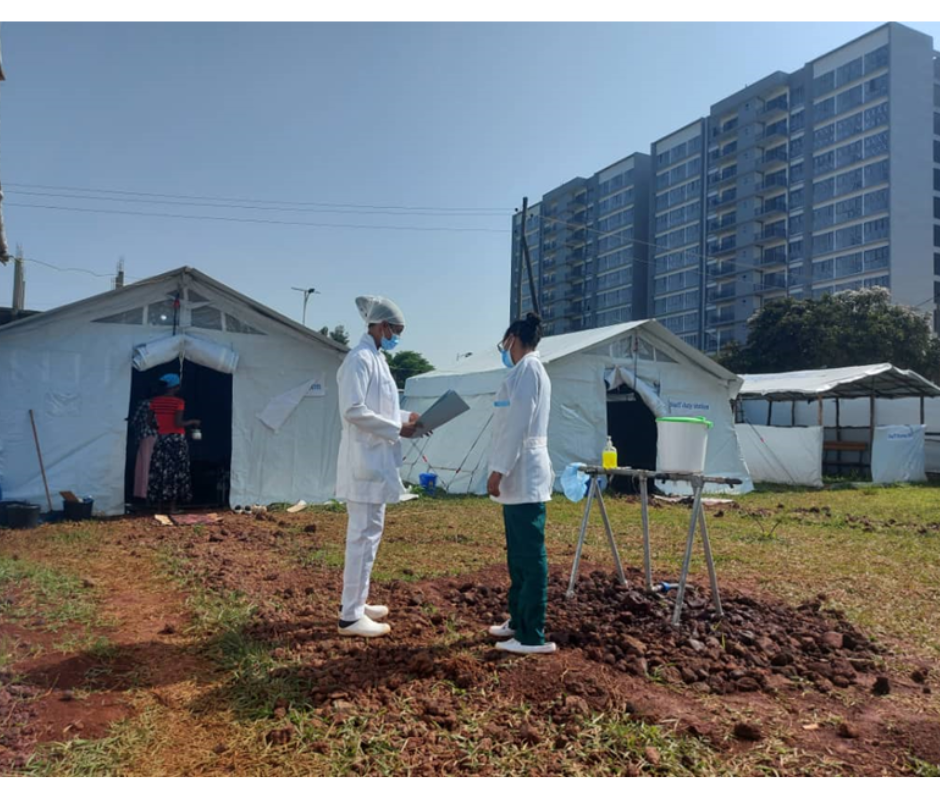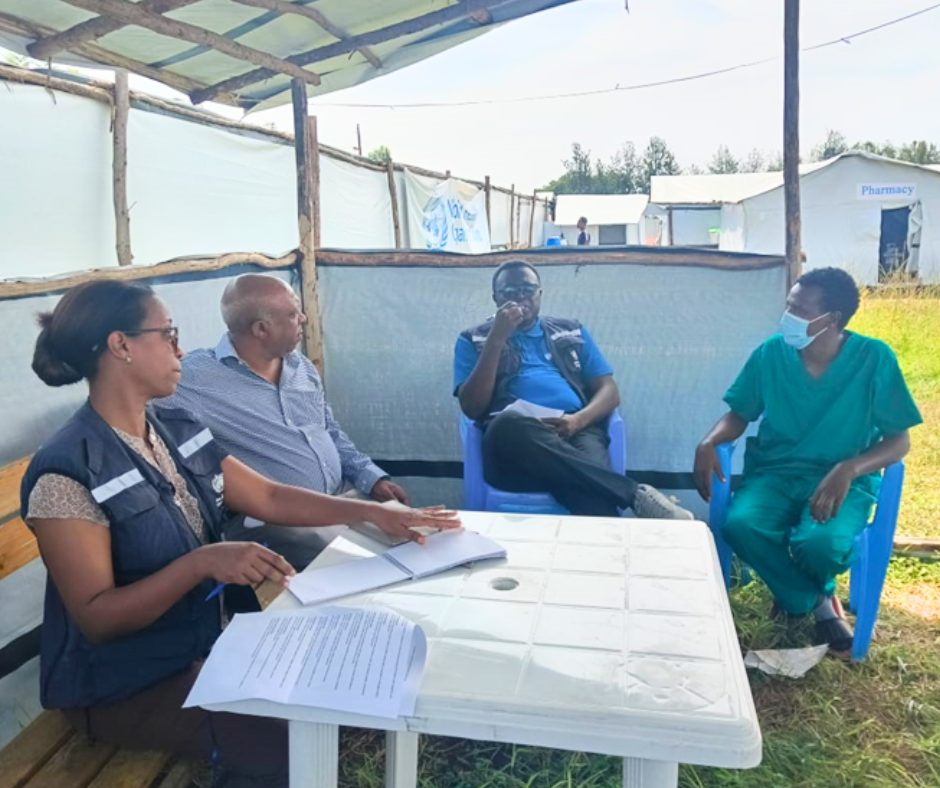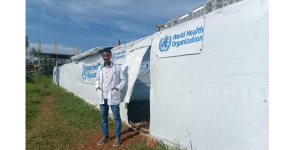WHO Ethiopia: A sneak peek inside the Addisalem Cholera Treatment Center
Bahir Dar– The Addisalem Cholera Treatment Center (CTC) spans an impressive area of 300 square meters and caters to a substantial catchment area, home to a population of over 350,000. The CTC was built by the World Health Organization as a response center in a district with a history of reported cholera cases.
Treatment Centers are in-patient health-care structures set up to isolate and treat patients during outbreaks. When put that way it may sound like nothing out of the ordinary. The truth is, the Emergency Medical Teams managing these structures are performing daily miracles often taken for granted considering the conditions under which they operate.
Dr Engdayehu Tessema, the team lead at the CTC, is in his mid-thirties. When asked about what time the day starts at the CTC he smiles and says: “It is a 24/7 job, so we are here almost all the time.” Each patient that is admitted receives maximum supportive care. The CTC ensures that individual records are kept for each patient. This includestreatment that is being administered and updates on the patient's progress, facilitating efficient tracking and future follow-up care.
The medical team at the Addisalem CTC has had to admit up to a dozen critical patients on some days. The patients stay for over a week, sometimes two. “It can be intense, we have men, women and children at different stages who all need maximum care. Sometimes people come in as caretakers for a family member to later develop symptoms then end up as patients too.” Dr Engdayehu said.
Fortunately for Dr Engdayehu and his team, of all the patients that gave them cold sweats and sleepless nights, none of them have had to exit by the morgue. “Our worst cases were a 7-year-old child and a young lady. They were in such a critical state that once we had put in all the science, all we could do is wait for nature to run its course.” Dr Engdayehu said.
To this day, Dr Engdayehu holds on dearly to a picture taken with the fully recovered young patient he fought to keep alive. As for the lady, she has been visiting Addisalem hospital for happier reasons than what brought her there in the first place. She is expecting a baby in January 2024. Dr Engdayehu stays in touch with his former patients as much as he can. He also plays his role in health education by engaging the community that lives around the CTC be it directly or via media.
It is this fairytale type of ending that motivates the CTC’s medical team to deliver the best health services they can regardless of the shortage of antibiotics, reagents, and Rapid Diagnostic Tests (RDTs) or medical staff. Since Addisalem’s CTC also serves as a referral unit for surrounding health facilities, Dr Engdayehu has advocated for the recalculation of clinical staff versus patient ratios to the Regional Bureau in Amhara.

In anticipation of surge periods during outbreaks, the CTC maintains 86 beds readily available to accommodate an influx of cholera patients. Since the last wave in August 2023, Dr Engdayehu and his team have treated over 220 patients. The 12-member team would have been overwhelmed without proper supplies and Infection Prevention and Control (IPC) measures. As part of WHO’s efforts to ensure that CTCs such as the one at the Addisalem Hospital are operating under commendable standards and operational competency, regular visits are organized. On October 12, 2023, Dr Bachir Mbodj, the Cholera Incident Manager, Dr Endalamaw Aberra, Partnerships Coordinator, and Dr Addisalem Yilma Teffera, Amhara Hub Coordinator made the trip.
Dr Engdayehu walked the WHO team from the Bahir Dar hub around the CTC, where they discovered a comprehensive and well-organized setup, with designated zones for crucial functions like triage, treatment, and isolation, three admission rooms, two observation rooms, and two specialized wards equipped to care for children and pregnant women. The CTC also features two exit rooms and a morgue because sadly, death is one of the ways some exit a CTC.
The WHO team commended the measures put in place to prevent environmental contamination and appreciated the management of crucial medical supplies such as oral rehydration salts (ORS), intravenous fluids, antibiotics, and essential equipment provided by WHO for the rapid diagnosis of cholera. Throughout this outbreak the CTC has also been instrumental with the monitoring and reporting of cases to both local health authorities and the national disease surveillance system.
WHO is grateful for the financial support received from the United States International Agency for Development, the US Centers for Disease Control and Prevention, Humanitarian Aid Department of the European Commission (ECHO) and the Central Emergency Response Fund.

Communications officer
Emaill: rutaremaraa [at] who.int (rutaremaraa[at]who[dot]int)
Communications Officer
WHO Ethiopia
Email: gebremichaela [at] who.int (gebremichaela[at]who[dot]int)
